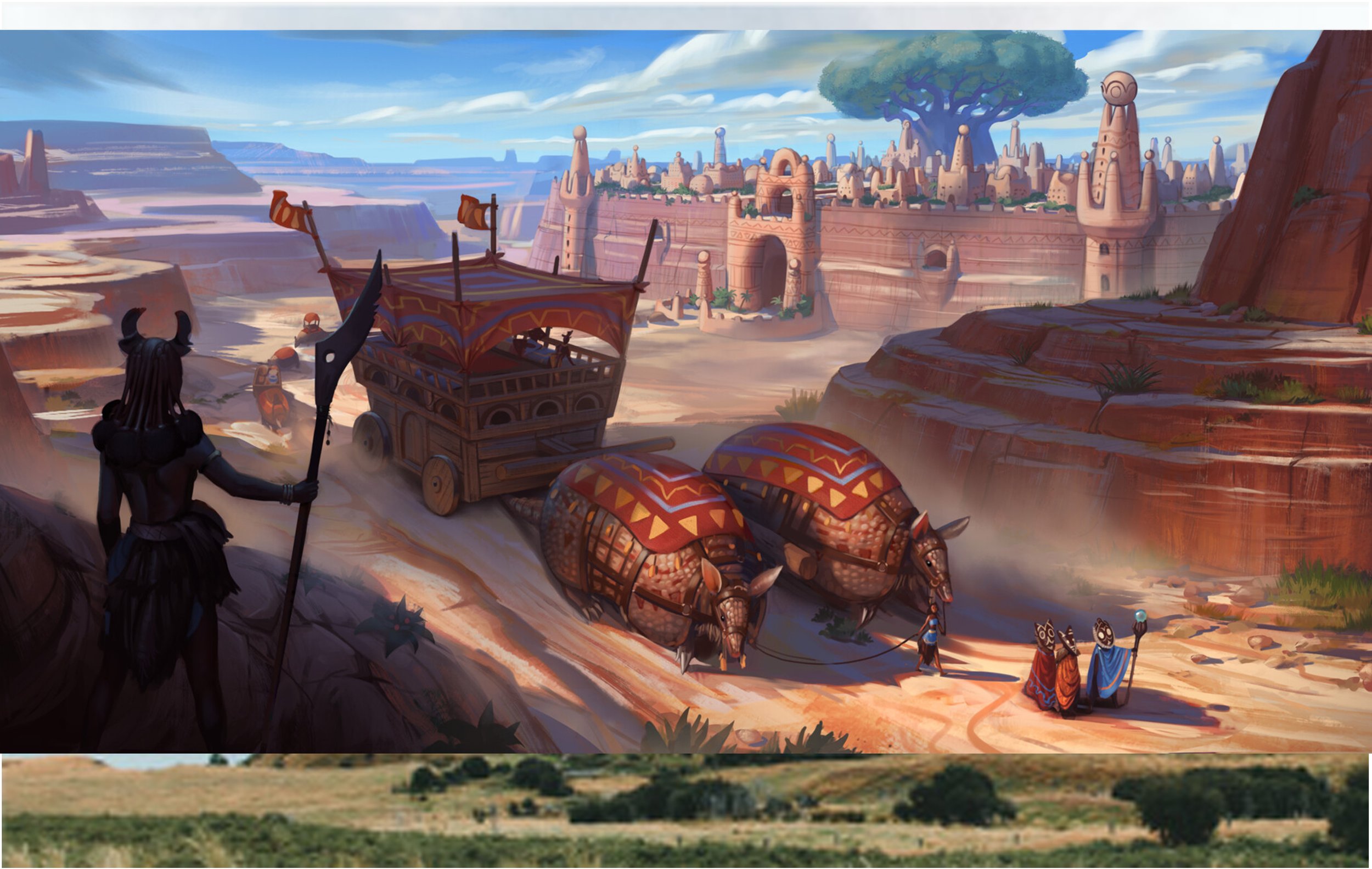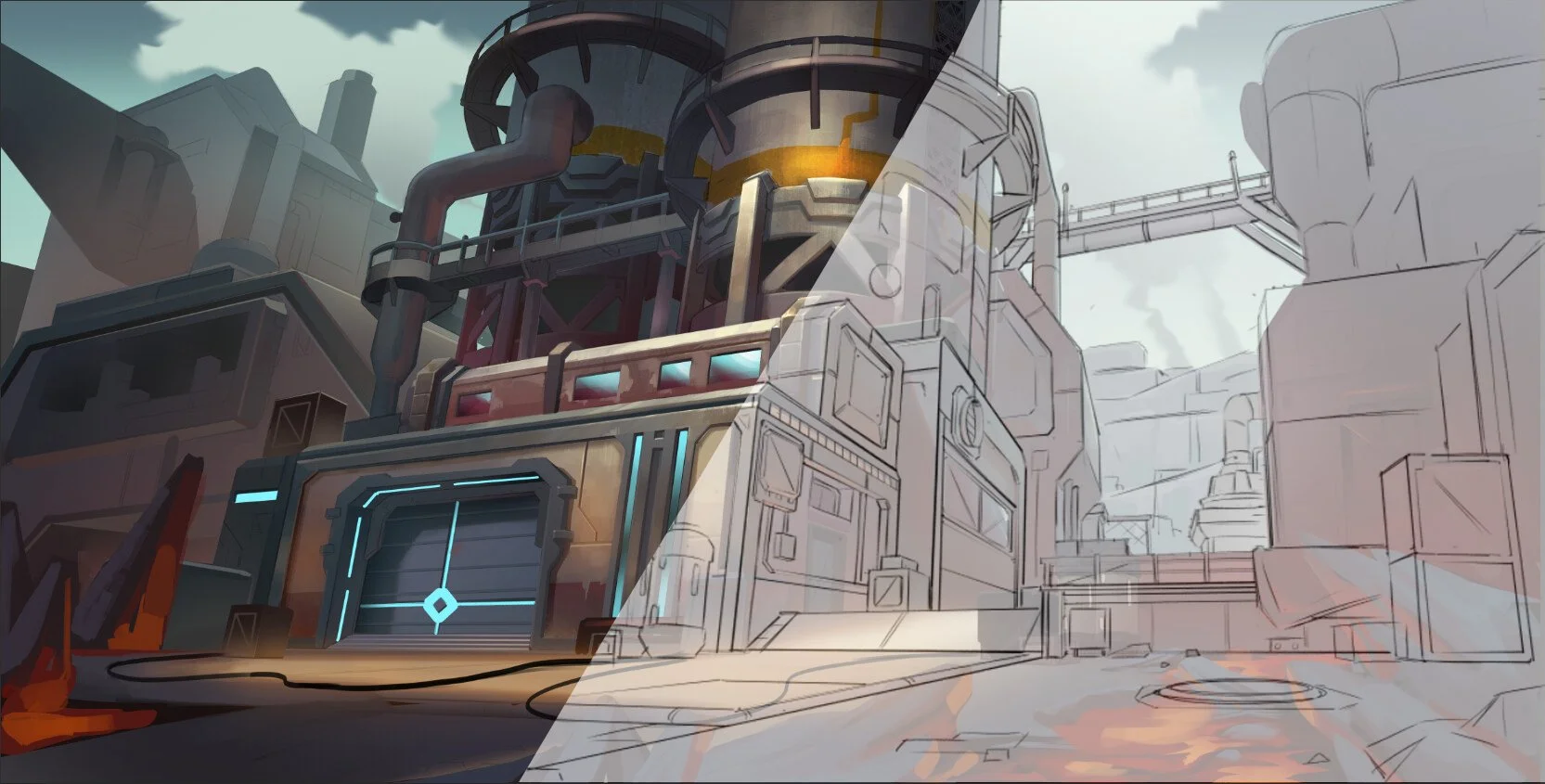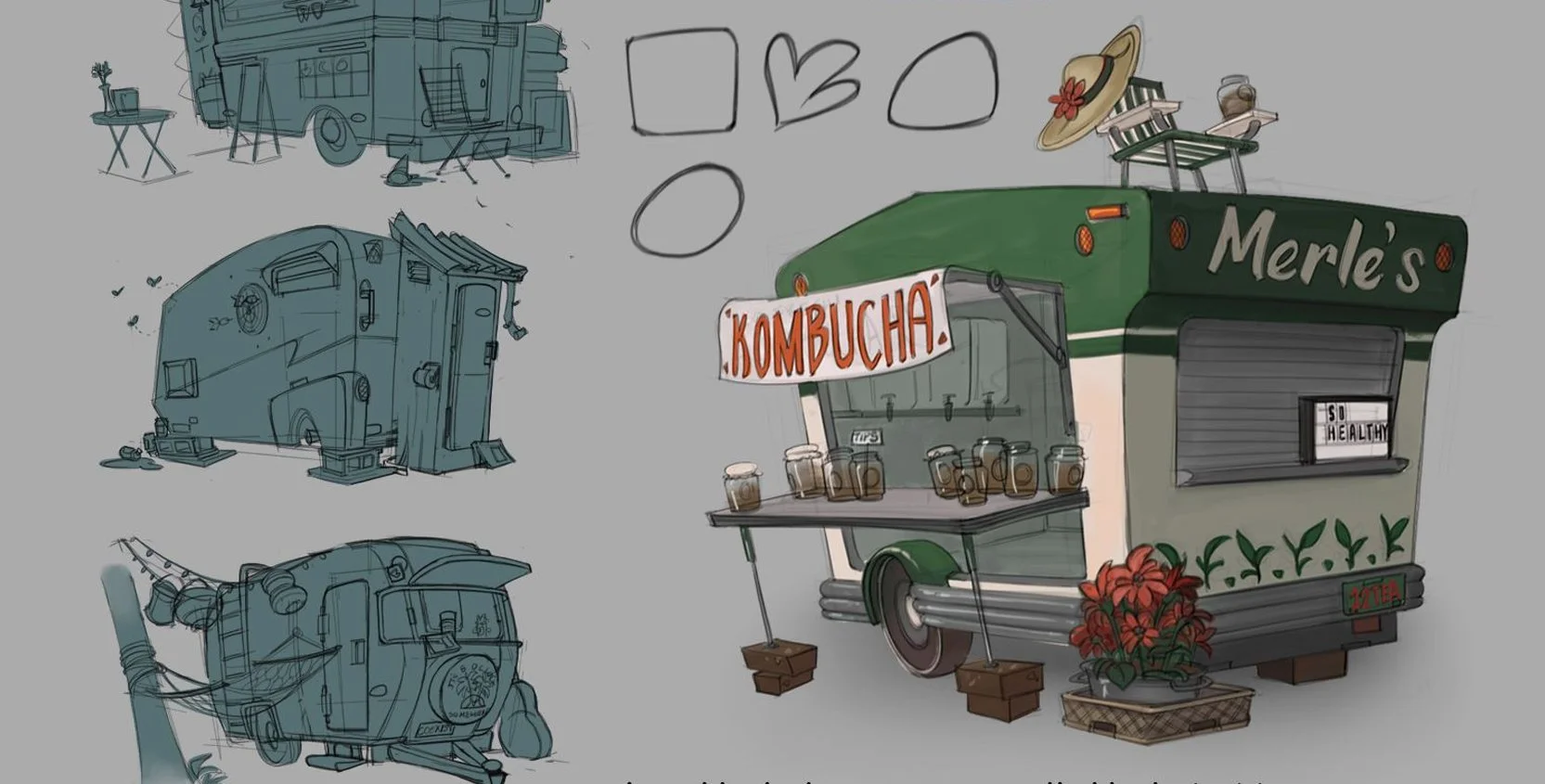
DO WHAT YOU LOVE
Personalized Guidance:
Receive tailored advice and feedback specific to your skill level, goals, and areas of improvement.
Focused Learning:
Direct attention on your strengths and weaknesses, allowing for targeted skill development.
Real-Time Feedback:
Immediate critique and suggestions during mentorship sessions enhance learning and
problem-solving.
Customized Curriculum:
Mentorship programs can be tailored to cover topics and techniques relevant to your artistic interests.
Career Insights:
Gain industry-specific knowledge and guidance on portfolio development, networking, and professional practices.
Building Confidence:
Personalized encouragement and support help boost confidence and overcome creative blocks.
Student work by William Wu 2024
1 on 1 Premium Art Mentorships
We have a roster of professional art instructors here to guide you.
Information
Please review the information below to explore the curriculum that interests you the most, and then reach out to us. Please include a brief description of yourself along with a link to your art samples. Let us know the type of mentorship you are interested in. After a brief assessment and mutual agreement, we will send an invoice for the down payment via email. We look forward to hearing from you!
Prices and Fees
All 1 on 1 mentorships are $1,000 USD plus sales tax
A $200 deposit is required at signup
$800 will be due the first week of your term
Flexibility
All Curriculums below are just a place to start
Yours will be tailored to your needs and interests!
The terms are for 8 Sessions (calls) via discord
Whether you want to meet once every work or take a more staggered approach such as bi-weekly we will meet your needs.
Scheduling
Depending on the type of mentorship and availability of instructor your start date may vary.
Expect to wait 2-6weeks from time of signup
You will be informed via email before hand.
Expectations
You will get out of this what you put in.
Each call will last 60-90 min depending on the instructor. You can have all your questions answered, demonstrations provided, and assignments be reviewed during calls.
Mentorships offered
1 on 1 MENTORSHIPS
-
Week 1: Visual Communication Principles
Key Concepts: Composition Depth & scale Proportion Perspective
Objective:
Learn how to create interesting focal points and bring environments to life.
Week 2: Ideation 1: Design Principles & Sketching
Key Concepts:
Entertainment design principles Mixing keywords for ideation Various sketching methods
Objective: Develop interesting concepts and sketch them out.
Week 3: Ideation 2: Composition & Staging
Key Concepts: Archetypical lighting scenarios (direct, ambient, artificial)Staging techniques
Week 4: Color & Mood
Key Concepts: Relationship between color and value Creating mood with color
Week 5: 3D Part 1: The Blockout
Key Concepts:
Creating a simple blockout in 3D Modeling props to populate scenes Drawing and painting over renders
Week 6: 3D Part 2: The Concept Key Concepts: Refinement of 3D models Texturing and lighting Final render and paint-over in Photoshop
Week 7: Painting & Photobashing Techniques
Key Concepts: Painting over 3D renders in Photoshop Using photos and brushes artistically
Objective: Create a detailed and cohesive concept image.
Week 8: Creating a Valuable Portfolio & Final Review
Key Concepts: Making images valuable to clients Presentation techniques
-
Week 1: Introduction to Art Disciplines and Medium Mastery
Understanding the Distinction Between Concept Art and Illustration
Overview of Essential Tools and Materials
Introduction to Design Theory and its Application
Week 2: Grasping Perspective and Basic Shapes
Delving into Basic Shapes and Their Symbolic Meanings
Exploring Shape Combinations and Complexity
Practical Application: Drawing Primitives from Various Angles (e.g., Trees, Buildings, Rocks, Clouds)
Week 3: Understanding Basic Forms
Differentiating Between Organic and Geometric Forms
Hands-On Exercises: Manipulating and Modifying Simple Primitives (e.g., Push, Pull, Stretch, Squish, Intersect)
Exploring Additive and Subtractive Techniques
Week 4: Mastering Basic Lighting
Learning to Convey Depth and Volume Through Lighting
Understanding the Impact of Lighting on Form and Composition
Week 5: Thumbnails and Value Studies
Utilizing Thumbnails to Explore Composition and Design Options
Introduction to Simple Value Studies for Depth and Dimensionality
Week 6: Composition Essentials
Exploring Basic Composition Tools, Including the Rule of Thirds and Tangents
Understanding Perspective Choice and Its Influence on Composition
Week 7: Unveiling Artistic Style
Recognizing Elements of Design Through Observation and Study
Transitioning from Observational Drawing to Conceptualization
Week 8: Drawing Inspiration from Masters
Analyzing and Learning from Artistic Masters
Fostering Personal Growth and Development as an Artist
-
Week 1: Introduction to Illustration Basics
Overview of illustration as a form of visual communication
Introduction to fundamental concepts such as line, shape, form, and composition
Basic drawing exercises to warm up and practice hand-eye coordination
Week 2: Digital Illustration Tools and Techniques
Introduction to digital illustration software and tools (e.g., Adobe Photoshop, Procreate)
Hands-on tutorials for digital drawing, painting, and editing techniques
Exploration of digital brushes, layers, and effects to enhance illustrations and streamline workflow
Week 3: Exploring Perspective and Proportions
Overview of perspective drawing techniques, including one-point, two-point, and three-point perspective
Exercises to understand how to create depth and spatial relationships in illustrations
Practice drawing objects and environments in perspective to create realistic scenes
Week 4: Developing Your Style and Visual Language
Discussion on the importance of developing a unique artistic style and visual identity
Exploration of different illustration styles, techniques, and media
Experimentation with various mark-making techniques and stylistic elements to find your personal voice as an illustrator
Week 5: Color Theory and Rendering Techniques
Introduction to color theory principles, including hue, value, saturation, and color harmonies
Practice exercises for mixing colors, creating gradients, and rendering textures
Exploration of digital and traditional rendering techniques to add depth and dimension to illustrations
Week 6: Storytelling and Narrative Illustration
Overview of narrative illustration and its role in storytelling
Analysis of narrative techniques such as composition, pacing, and visual storytelling
Development of a short narrative project or storyboard incorporating illustrations to convey a story or concept
Week 7: 2D for 3D
Overview of modern techniques to create advanced illustrations
Blender, posing, software, to VR workflow overview
Use 3d to practice combining 2d and 3d as a short project
Week 8: Portfolio Development and Final Project
Guidance on assembling a professional illustration portfolio showcasing your best work
Review and critique of student portfolios, with feedback on strengths and areas for improvement
Completion of a final illustration project or series demonstrating mastery of fundamental skills and personal style
-
Week #1: The Design Process
Introduction to the design process, emphasizing the relationship between form and function.
Exploring the concept of unity in design to achieve cohesive compositions.
Deconstructing complex designs and rebuilding them through simplification.
Week #2: Shape Design
Defining design parameters and applying labels to understand basic shape concepts.
Using additive and subtractive transformations to create various props.
Applying core concepts of shape design to develop a series of designs based on primitive shapes.
Week #3: Form Language
Integrating the lessons of basic form manipulation (Week 1) and problem-solving techniques (Week 2) to create unique designs.
Extracting form language from everyday objects to inspire new design concepts.
Demonstrating how to use extracted forms to design a space freighter based on vacuum parts.
Week #4: Style Guides: Foliage Design
Exploring style guides and their role in designing for specific projects.
Understanding balance and rhythm in composition and sequence arrangement.
Applying proportion techniques to create environment props for the world designed in Week 3.
Week #5: Architecture Design Basics
Introduction to structure and architectural design principles.
Tasking each participant to design a singular dwelling for their respective projects.
Week #6: Composition and Environment Design Basics
Integrating geographical props and structures into composition exercises.
Creating comprehensive scenes to showcase the developed designs.
Week #7: Sketching for Production: Interiors
Employing mind mapping techniques to organize design details based on function and narrative cues.
Exploring patterns and textures to enhance interior design concepts.
Practicing sketching techniques for production to design detailed interior settings.
Week #8: Line & Shape: Prop & Vehicle Design
Comprehensive review of design techniques.
Applying design principles to vehicle and prop design, focusing on shape, silhouette, proportion, and line work.
Experimenting with precision, spontaneity, and gesture lines to refine designs.
FAQs
Your Questions
-
Yes! No matter time difference or workload. We are here to meet your needs.
-
Certainly and you can learn about them here
-
You will be notified on the immediate availability and estimated start time before you commit. It generally ranges 2-6 weeks depending on an instructors current schedule.
-
This will vary greatly depending on your experience, mentorship type, and effort you put in. Students have generated entire portfolios and some a single long project piece.
-
yes of course let us know in the inital email.
-
The initial deposit is non-refundable you are always welcome to reschedule and post postpone your start date. If something comes up urgently and you need to cancel abruptly you will be refunded the amount of the remining sessions.
-
Not specifically, if you are planning on taking an illustration/ or environment design mentorship and want to use your own ideas you could start planning them out.
-
All you need to do is click the button below to contact us, let us know abit about yourself, include a link to your work and let us know what type of mentorship you are looking for.
-
Of course that’s the primary benefit of having a personalized mentorship.
-
Jobs are not directly handed out by Brushsauce Studio. If your goal is to focus on a more marketable portfolio we will help you develop the skills you need and point you in the right direction.







